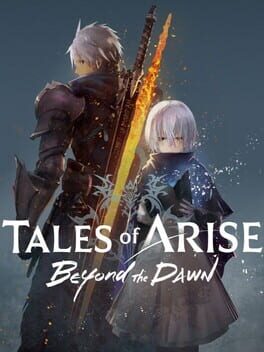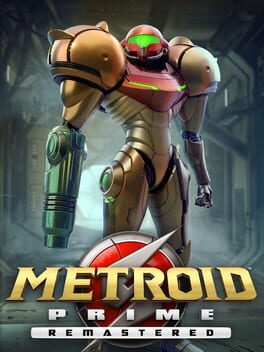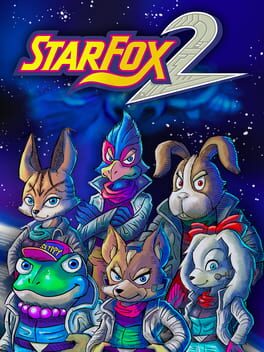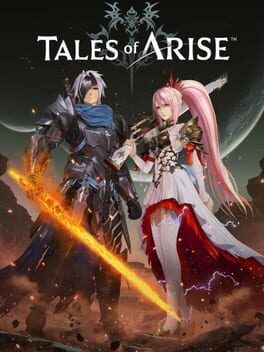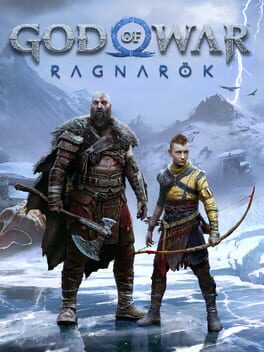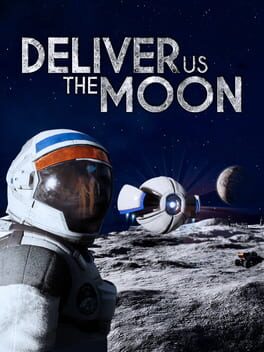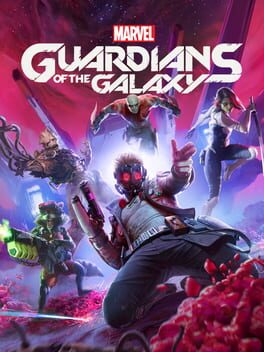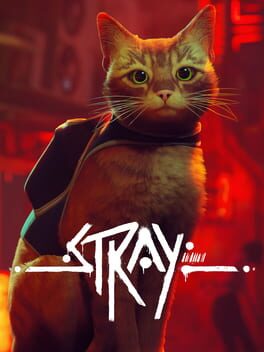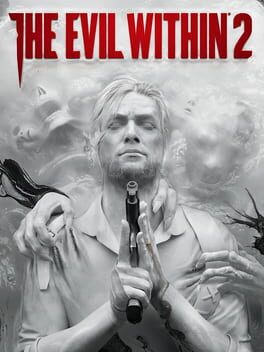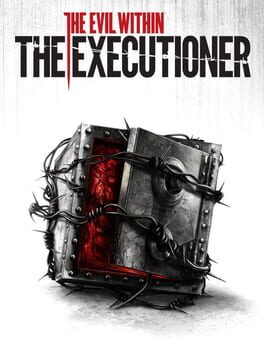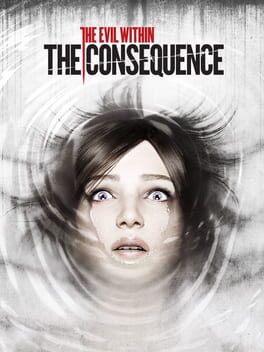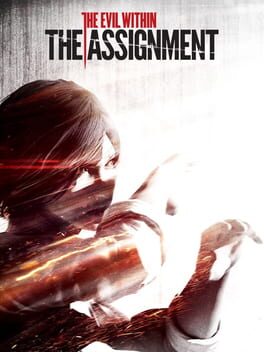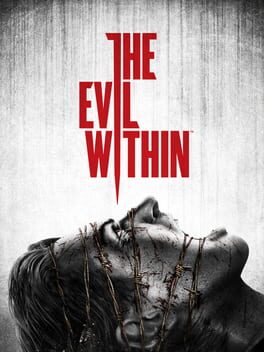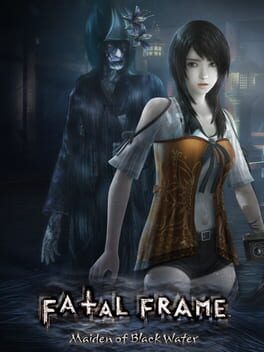Orpheon
This DLC is the epitome of average.
The story is fine. There was a lot of potential regarding where they could take it after the main game, and yet, I'd argue the route taken here was the safest. Nothing truly new is added when it comes to the state of the world (People are still trying to figure out their differences, as expected), and the character arcs only explore existing struggles or personal journeys (e.g. Alphen is still struggling with being called hero/destroyer, Kisara seeing herself and her brother in a boy and his sister and wanting to protect them.)
Even Nazamil, the new character of the expansion, despite having a few good moments, was written in a very lacklustre way with a predictable arc.
So yeah, nothing necessarily wrong with the story here. It's just... Ok.
And that sentiment echoes throughout all other aspects of the DLC. In terms of gameplay, it rehashes almost everything from the base game to an almost absurd point (Arbitrary level AND skill reset.) I have nothing against having to level up again, but at least give me new arts and equipment to look forward to!)
What saves Beyond the Dawn, in my eyes, is the stellar combat and personal stories. Yes, nothing new is introduced to us, but we get more of the solid character arcs from the base game, and that's not bad at all!
The story is fine. There was a lot of potential regarding where they could take it after the main game, and yet, I'd argue the route taken here was the safest. Nothing truly new is added when it comes to the state of the world (People are still trying to figure out their differences, as expected), and the character arcs only explore existing struggles or personal journeys (e.g. Alphen is still struggling with being called hero/destroyer, Kisara seeing herself and her brother in a boy and his sister and wanting to protect them.)
Even Nazamil, the new character of the expansion, despite having a few good moments, was written in a very lacklustre way with a predictable arc.
So yeah, nothing necessarily wrong with the story here. It's just... Ok.
And that sentiment echoes throughout all other aspects of the DLC. In terms of gameplay, it rehashes almost everything from the base game to an almost absurd point (Arbitrary level AND skill reset.) I have nothing against having to level up again, but at least give me new arts and equipment to look forward to!)
What saves Beyond the Dawn, in my eyes, is the stellar combat and personal stories. Yes, nothing new is introduced to us, but we get more of the solid character arcs from the base game, and that's not bad at all!
Metroid Prime was my entry point to the Metroid franchise when it first came out, and it absolutely still holds its high quality even to this day. Unfortunately, it lacks a few quality-of-life improvements made to the genre, such as a way to track which upgrades you have already acquired, but the fact that exploring the game world is such a pleasant experience helps soften the blow of the constant backtracking required at times.
At the end of the day, the remastered graphics and modern control styles do a great job of elevating this game to modern hardware, thus allowing this classic to cement itself yet again as a must-play for fans of deep 3D exploration and intricate level design.
At the end of the day, the remastered graphics and modern control styles do a great job of elevating this game to modern hardware, thus allowing this classic to cement itself yet again as a must-play for fans of deep 3D exploration and intricate level design.
2017
Played this game mostly out of curiosity given it’s a significant piece of history in itself.
That said, the experimental nature of this game is very evident to me. The 3D graphics at the time were mind-blowing, but boy does it control awkwardly. Also not the biggest fan of the timers everywhere from the get go, as it puts too much pressure when trying to learn the game.
What I enjoyed the most was actually seeing how much of this game went on to become Star Fox 64 and Zero later. The Star Wolf sequences, Venom, the All-Range stages, multiple routes and the ship transformation all would eventually come back in much more polished forms. In that sense, I’m really happy this game exists and that Nintendo made it available!
That said, the experimental nature of this game is very evident to me. The 3D graphics at the time were mind-blowing, but boy does it control awkwardly. Also not the biggest fan of the timers everywhere from the get go, as it puts too much pressure when trying to learn the game.
What I enjoyed the most was actually seeing how much of this game went on to become Star Fox 64 and Zero later. The Star Wolf sequences, Venom, the All-Range stages, multiple routes and the ship transformation all would eventually come back in much more polished forms. In that sense, I’m really happy this game exists and that Nintendo made it available!
This review contains spoilers
Nintendo has done it again. After revolutionizing the open-world genre with Breath of the Wild, they raised the quality bar of the Zelda franchise even further with Tears of the Kingdom.
What on the surface might look like a mere "clone" of BotW quickly shows that there's so much above and beneath the surface (literally).
The game masterfully uses the design pillars of Discovery and Exploration, which were so well executed in the previous installment. The same philosophy that once made Hyrule so much fun to explore is now applied to not two but THREE maps. Not only will you have a good time exploring the surface while noticing all the minor and significant changes since your last visit, but you also have an entire underground version of Hyrule called The Depths and the Great Sky.
Although it might initially seem overwhelming, these three giant maps do a great job of setting proper expectations and creating their own identities. When you first descend into the Depths, you're immediately met with an oppressive atmosphere. The entire place is dark, and even the ground can hurt you. The Great Sky is the complete opposite, with a seemingly boundless area for you to fly around using your vehicles.
Each map twists the pillars of Discovery and Exploration and makes it their own. Yes, you're adventuring in all three, but HOW you approach exploring each zone is vastly different, resulting in a refreshing experience. To be fair, these experiences aren't always the best. Flying in a straight line for 5 minutes to reach a small island in the sky isn't necessarily fun. Still, at least the sky is the area that requires the least amount of exploration, and you'll mostly find yourself using your airborne abilities and vehicles to get to new places on the surface.
TotK also introduces two major features that help set it apart from its predecessor: Zonai Devices and Ultrahand/Fuse.
Zonai Devices are relics of an ancient civilization that Link can use to make all sorts of devices and vehicles to assist him in his journey, only limited by your imagination. It creates an entertaining gameplay loop of seeing how far you can push your inventions and the game's physics engine. If you're like me and feel overwhelmed when you think about the number of possibilities, fret not. The game helps players wrap their heads around the potential of this feature by giving them schemas and blueprints to get started.
As for Ultrahand/Fuse, how much that changes how you play is wild. At first, I thought this ability felt disconnected from the Zelda formula, but after playing around with it, I believe it fits nicely within it. Through it, you can fuse any two resources into something new. It's an ingenious solution to a massive issue BotW had with the need for more usability for many of the items you found. Now, everything, and I genuinely mean everything, has at least the potential of being fused into a weapon to make it slightly more potent. In addition, it indirectly helps with the downsides of the durability system that, unfortunately, came back in this iteration. Now players more often than not feel excited about finding new weapons, even weak ones, so they can try fusing new components into it. It can also result in hilarious combinations, such as the iconic meat arrow. It invites experimentation like nothing else and is an excellent addition to the formula.
In terms of the story, it follows a VERY similar structure to Breath of the Wild, for better and for worse. While it retains the focus of serving the gameplay and not the other way around, I feel it was a missed opportunity to innovate how they tell the story here to help with the inconsistent pacing as a result of players going wherever they want at all times.
I must also mention a minor gripe I have with the ending. I enjoyed the story in general, but an aspect of it could have been handled better, and it concerns Zelda's fate.
Without getting into too much detail, Zelda "sacrifices" herself to become a Light Dragon in order to restore the Master Sword. In one of the memories, Mineru states that this is irreversible and a big deal, as one gains immortality but loses their sense of self. The revelation that the Light Dragon we see roaming Hyrule for hours is Zelda is powerful and a bit sad, as she is stuck in that form forever, supposedly.
At the end of the game, after defeating the Demon King, the spirits of Rauru and Sonia channel their Light and Time powers through Link and manage to restore Zelda's original form. I want to clarify: Zelda returning to her original form makes sense, and I love it. It's the type of story I expect from Zelda. My issue is how cheap this feels in its delivery. It felt as if the developers got to the end of the game and forgot they had to restore Zelda so the game could have a happy ending and included this scene to "fix" it. It slightly undermines the sacrifice she makes. Ideally, something like this would have been hinted at, even if in an obscure way throughout the game, or the game shouldn't have made this transformation sound so final.
Regardless, the game's final moments still gave me chills. This game might also have one of the best renditions of Ganondorf to date, which is genuinely scary and imposing. Finally, I will always love how Nintendo allows me to play great cinematic moments like Link descending through the skies to hold Zelda's hand. It's beautiful, and I'm here for it.
At the end of the day, you cannot go wrong with Tears of the Kingdom. For all the reasons above, I believe this is easily one of the best games ever made, and it will surely give you an adventure worth your time and effort on an unheard-of scale in the industry.
What on the surface might look like a mere "clone" of BotW quickly shows that there's so much above and beneath the surface (literally).
The game masterfully uses the design pillars of Discovery and Exploration, which were so well executed in the previous installment. The same philosophy that once made Hyrule so much fun to explore is now applied to not two but THREE maps. Not only will you have a good time exploring the surface while noticing all the minor and significant changes since your last visit, but you also have an entire underground version of Hyrule called The Depths and the Great Sky.
Although it might initially seem overwhelming, these three giant maps do a great job of setting proper expectations and creating their own identities. When you first descend into the Depths, you're immediately met with an oppressive atmosphere. The entire place is dark, and even the ground can hurt you. The Great Sky is the complete opposite, with a seemingly boundless area for you to fly around using your vehicles.
Each map twists the pillars of Discovery and Exploration and makes it their own. Yes, you're adventuring in all three, but HOW you approach exploring each zone is vastly different, resulting in a refreshing experience. To be fair, these experiences aren't always the best. Flying in a straight line for 5 minutes to reach a small island in the sky isn't necessarily fun. Still, at least the sky is the area that requires the least amount of exploration, and you'll mostly find yourself using your airborne abilities and vehicles to get to new places on the surface.
TotK also introduces two major features that help set it apart from its predecessor: Zonai Devices and Ultrahand/Fuse.
Zonai Devices are relics of an ancient civilization that Link can use to make all sorts of devices and vehicles to assist him in his journey, only limited by your imagination. It creates an entertaining gameplay loop of seeing how far you can push your inventions and the game's physics engine. If you're like me and feel overwhelmed when you think about the number of possibilities, fret not. The game helps players wrap their heads around the potential of this feature by giving them schemas and blueprints to get started.
As for Ultrahand/Fuse, how much that changes how you play is wild. At first, I thought this ability felt disconnected from the Zelda formula, but after playing around with it, I believe it fits nicely within it. Through it, you can fuse any two resources into something new. It's an ingenious solution to a massive issue BotW had with the need for more usability for many of the items you found. Now, everything, and I genuinely mean everything, has at least the potential of being fused into a weapon to make it slightly more potent. In addition, it indirectly helps with the downsides of the durability system that, unfortunately, came back in this iteration. Now players more often than not feel excited about finding new weapons, even weak ones, so they can try fusing new components into it. It can also result in hilarious combinations, such as the iconic meat arrow. It invites experimentation like nothing else and is an excellent addition to the formula.
In terms of the story, it follows a VERY similar structure to Breath of the Wild, for better and for worse. While it retains the focus of serving the gameplay and not the other way around, I feel it was a missed opportunity to innovate how they tell the story here to help with the inconsistent pacing as a result of players going wherever they want at all times.
I must also mention a minor gripe I have with the ending. I enjoyed the story in general, but an aspect of it could have been handled better, and it concerns Zelda's fate.
Without getting into too much detail, Zelda "sacrifices" herself to become a Light Dragon in order to restore the Master Sword. In one of the memories, Mineru states that this is irreversible and a big deal, as one gains immortality but loses their sense of self. The revelation that the Light Dragon we see roaming Hyrule for hours is Zelda is powerful and a bit sad, as she is stuck in that form forever, supposedly.
At the end of the game, after defeating the Demon King, the spirits of Rauru and Sonia channel their Light and Time powers through Link and manage to restore Zelda's original form. I want to clarify: Zelda returning to her original form makes sense, and I love it. It's the type of story I expect from Zelda. My issue is how cheap this feels in its delivery. It felt as if the developers got to the end of the game and forgot they had to restore Zelda so the game could have a happy ending and included this scene to "fix" it. It slightly undermines the sacrifice she makes. Ideally, something like this would have been hinted at, even if in an obscure way throughout the game, or the game shouldn't have made this transformation sound so final.
Regardless, the game's final moments still gave me chills. This game might also have one of the best renditions of Ganondorf to date, which is genuinely scary and imposing. Finally, I will always love how Nintendo allows me to play great cinematic moments like Link descending through the skies to hold Zelda's hand. It's beautiful, and I'm here for it.
At the end of the day, you cannot go wrong with Tears of the Kingdom. For all the reasons above, I believe this is easily one of the best games ever made, and it will surely give you an adventure worth your time and effort on an unheard-of scale in the industry.
2021
As a long-time Tales fan, I had high hopes for this game. And I must say that while there are good highs to the experience (such as the combat), there are also awful lows (the 3rd act of the game). The result is a slightly above-average game. If you're here for the combat, you'll have a fantastic time. Even though it can get repetitive at times, it's flashy, fluid, and the best the series has ever been. This is only made better by the fantastic soundtrack. I honestly did not mind listening to the same battle tracks for the duration of my almost 60-hour journey. It's that good.
The same cannot be said of the story and other aspects of gameplay, however. The game's final act feels extremely rushed, with an unhealthy amount of exposition crammed into the final moments prior to engaging with the last boss (which was also underwhelming).
In addition to that, while the combat was good enough to keep me hooked, I wish there was a bit more love given to the world and the ways that players interact with it. Exploration felt very limited and restrictive, and the further you go into the game, the smaller and less interesting the areas get, which is absolutely not how it's supposed to go.
Despite all that, Tales of Arise is still a fun JRPG with some pretty well-designed systems and a somewhat interesting story.
The same cannot be said of the story and other aspects of gameplay, however. The game's final act feels extremely rushed, with an unhealthy amount of exposition crammed into the final moments prior to engaging with the last boss (which was also underwhelming).
In addition to that, while the combat was good enough to keep me hooked, I wish there was a bit more love given to the world and the ways that players interact with it. Exploration felt very limited and restrictive, and the further you go into the game, the smaller and less interesting the areas get, which is absolutely not how it's supposed to go.
Despite all that, Tales of Arise is still a fun JRPG with some pretty well-designed systems and a somewhat interesting story.
2022
An absolute masterpiece. There are very few instances where one can say that a sequel improved in every single aspect of the original title, but Ragnarok is definitely one of those.
Seeing Atreus grow from "boi" to an actual character, in all senses of the word, was one of the highlights of this game.
It's hard to find true negatives about this game, but, without giving spoilers, I expected more of the game's final boss.
The angle that the narrative team chose to tackle Norse mythology is incredible and genius. Kratos is very much an anomaly in this context, and this is reflected in the story in really cool ways that will make your jaw drop as you piece it all together.
Seeing Atreus grow from "boi" to an actual character, in all senses of the word, was one of the highlights of this game.
It's hard to find true negatives about this game, but, without giving spoilers, I expected more of the game's final boss.
The angle that the narrative team chose to tackle Norse mythology is incredible and genius. Kratos is very much an anomaly in this context, and this is reflected in the story in really cool ways that will make your jaw drop as you piece it all together.
2019
This is the definition of an average game. Graphics are impressive for a game of this scale, and the game does a good job of creating a pleasing space ambiance. The "realism" of operating tools and navigating in space is fun at first but quickly begins to show how limited the gameplay is. Moving is a bit awkward, the puzzles are very simplistic, and you are limited in terms of what you can interact with, which hinders your immersion.
The story is somewhat enjoyable. The twist, in the end, is pretty cool, but not much happens between the beginning and the end of the game to keep me guessing. You do go about piecing everything together, but until you get to the final moments, there aren't a lot of fun bits.
All that said, I'm still looking forward to the sequel in the hopes that it will make better use of the big potential left by its predecessor!
The story is somewhat enjoyable. The twist, in the end, is pretty cool, but not much happens between the beginning and the end of the game to keep me guessing. You do go about piecing everything together, but until you get to the final moments, there aren't a lot of fun bits.
All that said, I'm still looking forward to the sequel in the hopes that it will make better use of the big potential left by its predecessor!
This review contains spoilers
This game did not win Best Narrative 2021 for nothing.
There are very few games out there that are as well-written and directed as Guardians of the Galaxy. From the beginning, this game sets your expectation that it will deliver a fantastic narrative experience, which absolutely accomplishes that.
The overarching story is good enough, with the Guardians going from another day at work to saving the Galaxy, and while it drags on a bit during the end of the second act, its pacing is mostly consistent.
What sets this game's story apart is all the interactions between each major story beat. It's the conversations with each member of your crew. It's understanding their pasts, longings, and dreams. It's a great achievement that each main character is so well-developed and written. The dialogue lines FEEL like they're from each character and are hardly wasted. Despite being a long-time Marvel fan, I've discovered deeper layers of each character here, and that will absolutely stay with me.
Throughout the game, you're also presented with branching dialogue and paths. Granted, the choices always converge, but you still get to choose how to get there.
Remember, this is a narrative-focused experience; the game will not let you forget that. Whether exploring, fighting, or doing nothing, your characters will say something. In most other games, this would throw me off. I appreciate quiet moments so I can gather my thoughts. Not this one, though. I always looked forward to how the Guardians would comment about the current situation we were in. It was always a delight when someone commented that my Peter Quill was going in the wrong direction and seemed lost simply because I was exploring.
I want to give a strong shout to the game's ending sequence. While some of the outcomes of decisions I made were a bit disappointing (looking at you, Worldmind, and Cosmo), I dug the final battle against Magus. The gameplay is boring, but hear me out: Remember how I said that the game doesn't want you to forget you're playing a narrative experience? Even during the final fight, ultimately, what defeats the boss and saves the galaxy isn't your combat abilities. It's your team's ability to piss off everyone around them. And that is PERFECT. You defeat the boss using dialogue, essentially.
What's not perfect, however, is the gameplay. Combat is fun but repetitive. It gets super chaotic when you're trying to press buttons to open menus within menus to use a specific ability of a specific character. The linear levels also suffer from a lack of interesting routes and decisions to make. And don't get me started on the checkpoints. Sometimes you will fail one of the terribly implemented scripted sequences and go back way more than it should be legally allowed. Some of my most frustrating moments in this game were failing a very obtuse QTE sequence, only to be sent back 10 minutes' worth of progress. This is almost unacceptable in a game that cares so much about the narrative experience and so little about actual challenge and difficulty.
Despite all that, Guardians of the Galaxy is still a very strong recommendation from me. If you like narrative-centric games, this is an absolute must-play, and the gameplay flaws will not stand in the way of the great story you're about to experience.
There are very few games out there that are as well-written and directed as Guardians of the Galaxy. From the beginning, this game sets your expectation that it will deliver a fantastic narrative experience, which absolutely accomplishes that.
The overarching story is good enough, with the Guardians going from another day at work to saving the Galaxy, and while it drags on a bit during the end of the second act, its pacing is mostly consistent.
What sets this game's story apart is all the interactions between each major story beat. It's the conversations with each member of your crew. It's understanding their pasts, longings, and dreams. It's a great achievement that each main character is so well-developed and written. The dialogue lines FEEL like they're from each character and are hardly wasted. Despite being a long-time Marvel fan, I've discovered deeper layers of each character here, and that will absolutely stay with me.
Throughout the game, you're also presented with branching dialogue and paths. Granted, the choices always converge, but you still get to choose how to get there.
Remember, this is a narrative-focused experience; the game will not let you forget that. Whether exploring, fighting, or doing nothing, your characters will say something. In most other games, this would throw me off. I appreciate quiet moments so I can gather my thoughts. Not this one, though. I always looked forward to how the Guardians would comment about the current situation we were in. It was always a delight when someone commented that my Peter Quill was going in the wrong direction and seemed lost simply because I was exploring.
I want to give a strong shout to the game's ending sequence. While some of the outcomes of decisions I made were a bit disappointing (looking at you, Worldmind, and Cosmo), I dug the final battle against Magus. The gameplay is boring, but hear me out: Remember how I said that the game doesn't want you to forget you're playing a narrative experience? Even during the final fight, ultimately, what defeats the boss and saves the galaxy isn't your combat abilities. It's your team's ability to piss off everyone around them. And that is PERFECT. You defeat the boss using dialogue, essentially.
What's not perfect, however, is the gameplay. Combat is fun but repetitive. It gets super chaotic when you're trying to press buttons to open menus within menus to use a specific ability of a specific character. The linear levels also suffer from a lack of interesting routes and decisions to make. And don't get me started on the checkpoints. Sometimes you will fail one of the terribly implemented scripted sequences and go back way more than it should be legally allowed. Some of my most frustrating moments in this game were failing a very obtuse QTE sequence, only to be sent back 10 minutes' worth of progress. This is almost unacceptable in a game that cares so much about the narrative experience and so little about actual challenge and difficulty.
Despite all that, Guardians of the Galaxy is still a very strong recommendation from me. If you like narrative-centric games, this is an absolute must-play, and the gameplay flaws will not stand in the way of the great story you're about to experience.
2022
2017
There are sequels that improve almost every aspect of their predecessor while staying true to their roots. There are also sequels that diverge so much from the original formula of the previous game that it becomes almost unrecognizable. The Evil Within 2 walks the line between these two, and the result is a very good sequel that does away with a lot of what made the original frustrating at times while also introducing new elements that become new sources of annoyance.
TEW2 was built in the proprietary STEM Engine and is a significant leap from the original game, both in graphics and gameplay. Controls are much more fluid, Sebastian can start the game being able to run for more than 3 seconds (!!), and the Stealth mechanics are an undeniable improvement, albeit not deep. Combine these with a much larger environment to explore, and you have in your hands a great playground to decide how to tackle the challenge in the form of the enemies you find.
Sadly, the larger zones are also a reason that the game suffers from pacing issues early on. While it starts linearly, it doesn't take long to open too much too quickly. Given that this is a Survival Horror, it's only natural for players to scavenge the entire area for resources and side events before continuing. However, this makes certain chapters last much longer than they should, as well as potential odd sequence breaks, where you reach a location that's clearly where you're supposed to go, but Sebastian won't advance because you're not there in the story, yet.
This brings me neatly to my next point: The story. The approach taken here could not be more different than in the first game. While in The Evil Within, you're presented with a very complex, sometimes convoluted story, here everything is much easier to follow, as the plot was simplified, perhaps to a fault.
Don't get me wrong, I think the story in this game is pretty good, and I can appreciate how more accessible it is. However, the developers went a bit too far in this aspect, and the result is Sebastian throwing random lines that explain what you're seeing, what you heard, and what's happening before you have the chance to figure it out yourself. The exposition becomes blatantly obvious at times, and you'd be forgiven if you roll your eyes a couple of times during the adventure.
Thankfully, while this does take away of the immersion I'd expect in a Survival Horror, it's not enough to rob the experience of its glory. The plot will still hook you in and reward you with incredible setpieces and cinematics that showcase the best of the gorgeous new environments of Union have to offer.
Overall, The Evil Within 2 is a great Survival Horror game that tried to address many of the shortcomings of the original, and while it succeeded in many areas, it failed in others. If you're a fan of the original, you'll certainly have a good time here.
TEW2 was built in the proprietary STEM Engine and is a significant leap from the original game, both in graphics and gameplay. Controls are much more fluid, Sebastian can start the game being able to run for more than 3 seconds (!!), and the Stealth mechanics are an undeniable improvement, albeit not deep. Combine these with a much larger environment to explore, and you have in your hands a great playground to decide how to tackle the challenge in the form of the enemies you find.
Sadly, the larger zones are also a reason that the game suffers from pacing issues early on. While it starts linearly, it doesn't take long to open too much too quickly. Given that this is a Survival Horror, it's only natural for players to scavenge the entire area for resources and side events before continuing. However, this makes certain chapters last much longer than they should, as well as potential odd sequence breaks, where you reach a location that's clearly where you're supposed to go, but Sebastian won't advance because you're not there in the story, yet.
This brings me neatly to my next point: The story. The approach taken here could not be more different than in the first game. While in The Evil Within, you're presented with a very complex, sometimes convoluted story, here everything is much easier to follow, as the plot was simplified, perhaps to a fault.
Don't get me wrong, I think the story in this game is pretty good, and I can appreciate how more accessible it is. However, the developers went a bit too far in this aspect, and the result is Sebastian throwing random lines that explain what you're seeing, what you heard, and what's happening before you have the chance to figure it out yourself. The exposition becomes blatantly obvious at times, and you'd be forgiven if you roll your eyes a couple of times during the adventure.
Thankfully, while this does take away of the immersion I'd expect in a Survival Horror, it's not enough to rob the experience of its glory. The plot will still hook you in and reward you with incredible setpieces and cinematics that showcase the best of the gorgeous new environments of Union have to offer.
Overall, The Evil Within 2 is a great Survival Horror game that tried to address many of the shortcomings of the original, and while it succeeded in many areas, it failed in others. If you're a fan of the original, you'll certainly have a good time here.
A clearly low-budget DLC that was more fun than I was expecting it to be. The Executioner only exists to answer the question "I wonder how it would feel to play as that safe guy from the main story", and on that it delivers. It's satisfying to pull off finishers and the arcade structure lends itself well for multiple runs of this short DLC. Needless to say, the combat is not extremely polished, but it's good enough to allow for a good, albeit short time.
The Consequence can very well be considered The Assignment Part 2, as it picks up right after the ending of the first DLC and retains all the gameplay elements introduced there. This DLC, however, is definitely more enjoyable. It shines more light into Kidman's story and it ends with a fantastic tease for the sequel, the gameplay leans more into stealth exploration than combat, which I deeply appreciate, given that we know from The Assignment what happens when you try to do a stealth-based boss battle with a limited stealth system.
This DLC felt shorter, but I personally had a better time with it, and I highly recommend it if you enjoy the story of the game.
This DLC felt shorter, but I personally had a better time with it, and I highly recommend it if you enjoy the story of the game.
A good addition to the main game, this DLC expands on Kidman's story in a good way. The stealth-focused gameplay isn't super polished, leading to some frustrating or at least rather slow moments, but overall it works. The same cannot be said, however, about the boss battle against a certain someone that does nothing but show the limits of this system.
The story and lore behind the collectibles you find here are definitely what will make your adventure worthwhile.
The story and lore behind the collectibles you find here are definitely what will make your adventure worthwhile.
2014
A good survival horror game. The story is wild and while it suffers from a few pacing issues in the second act, it's interesting enough that you get excited as you start to put the pieces together.
The presentation is also a great plus in this game. Without getting into spoiler territory, this game's setting allows for very cool setpieces and sequences where you feel the environment itself is alive.
You also have a cast that's mostly interesting, and somewhat believable. Sebastian is exactly what I expect of a hard-boiled detective and Kidman is the equivalent to Ada in this game for those familiar with Resident Evil. I do wanna point out that Sebastian's personal story is really interesting, and I find it odd that it ended up relegated to be told through files only.
Sadly, there are also things that really try hard to undermine your experience. Someone in the dev team must have thought that the player dying with a single hit was the best idea ever because boy did they overuse that here. Enemies, scripted sequences, traps. Essentially every element of gameplay at some point can kill you with one hit, and no amount of checkpoints can save you from the frustration that ensues.
Furthermore, you also have a questionable stamina system that allows you to run for a whopping 3 seconds at a base level and an over-the-shoulder camera that zooms in way too much, making aiming your weapon at close range quite challenging.
All these things might be trying to stop you from having fun with this title, but, despite the aforementioned flaws, The Evil Within is still a solid and enjoyable horror game.
The presentation is also a great plus in this game. Without getting into spoiler territory, this game's setting allows for very cool setpieces and sequences where you feel the environment itself is alive.
You also have a cast that's mostly interesting, and somewhat believable. Sebastian is exactly what I expect of a hard-boiled detective and Kidman is the equivalent to Ada in this game for those familiar with Resident Evil. I do wanna point out that Sebastian's personal story is really interesting, and I find it odd that it ended up relegated to be told through files only.
Sadly, there are also things that really try hard to undermine your experience. Someone in the dev team must have thought that the player dying with a single hit was the best idea ever because boy did they overuse that here. Enemies, scripted sequences, traps. Essentially every element of gameplay at some point can kill you with one hit, and no amount of checkpoints can save you from the frustration that ensues.
Furthermore, you also have a questionable stamina system that allows you to run for a whopping 3 seconds at a base level and an over-the-shoulder camera that zooms in way too much, making aiming your weapon at close range quite challenging.
All these things might be trying to stop you from having fun with this title, but, despite the aforementioned flaws, The Evil Within is still a solid and enjoyable horror game.
This is one of the most average games I played in recent memory. The lore is interesting, but the story itself not only takes a long time to get going, but also suffers from the disconnected nature of the individual character arcs that cause a bit of confusion. The English voice acting leaves a lot to be desired as well.
The gameplay is fun and the most dynamic out of the 5 main entries of the series.
The antagonist is sadly weak compared to previous entries and I honestly struggled to find a good reason to pursue one of the good endings for a specific character, because of the lack of context that would push me to make that choice.
Overall, an enjoyable game that suffers from being a bit too slow and repetitive.
The gameplay is fun and the most dynamic out of the 5 main entries of the series.
The antagonist is sadly weak compared to previous entries and I honestly struggled to find a good reason to pursue one of the good endings for a specific character, because of the lack of context that would push me to make that choice.
Overall, an enjoyable game that suffers from being a bit too slow and repetitive.
